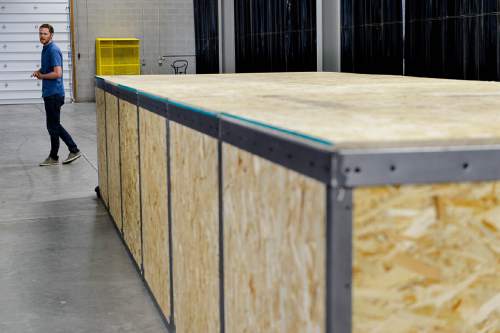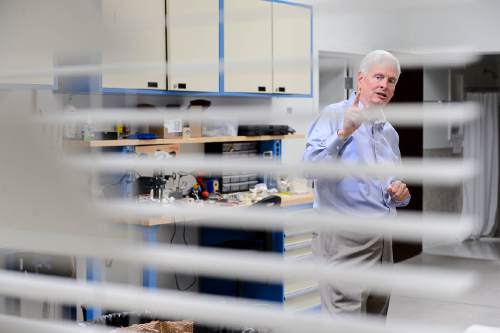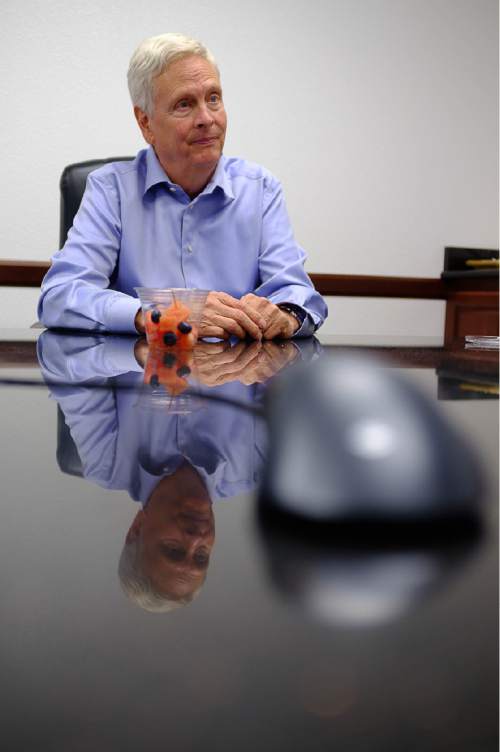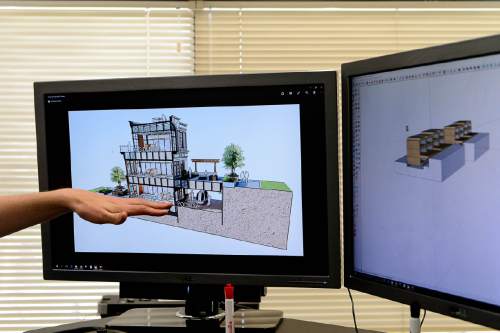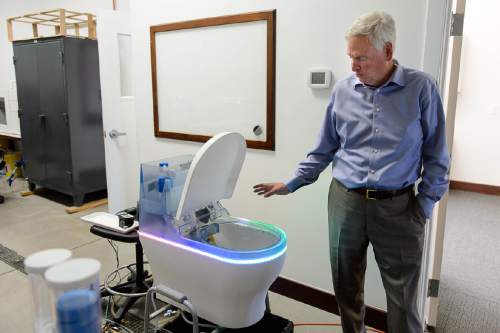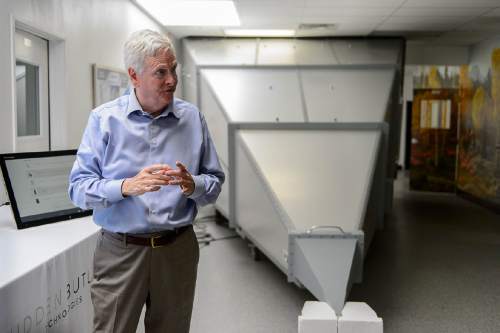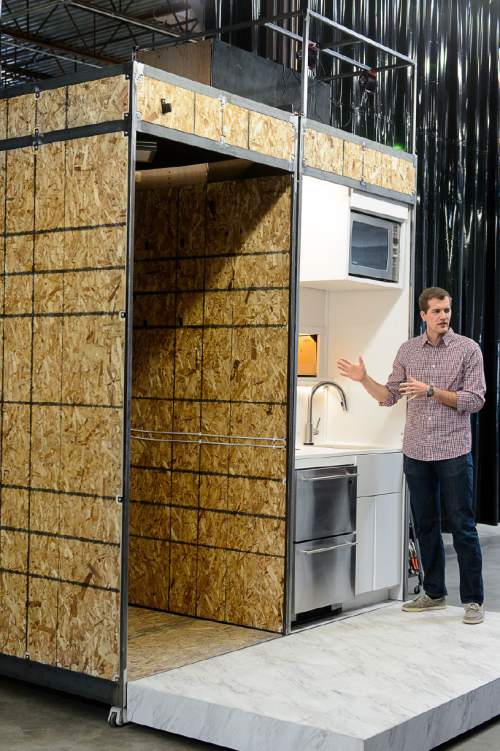This is an archived article that was published on sltrib.com in 2016, and information in the article may be outdated. It is provided only for personal research purposes and may not be reprinted.
The LDS Church is "not in favor" of plans by a Utah-based businessman to build compact, eco-friendly communities in Provo and Vermont modeled on the vision of Mormon founder Joseph Smith.
David C. Hall has devoted a substantial portion of his personal wealth and dozens of businesses he owns to making a reality of Smith's Plat of Zion, an intricate city blueprint drawn by the LDS prophet in 1833.
A Provo native and heir to a family diamond-making operation, Hall has been buying property in Provo's Pleasant View neighborhood, near the LDS Church's Missionary Training Center, and in Sharon, Vt., Smith's birthplace, in hopes of erecting a series of futuristic, self-sufficient and high-density centers. Residents in both locales have organized to fight the plans.
Hall points to decades of urban sprawl and single-family home construction as a "disaster" for humanity, especially as the world's resources dwindle. His NewVistas Foundation aims to create high-tech colonies packing in as many as 20,000 people per square mile, with the average resident consuming a tenth of what they do today. The vision, Hall said, would take generations to fulfill.
This week, The Church of Jesus Christ of Latter-day Saints noted Hall's efforts are "a private venture," not associated with the Utah-based faith "in any way."
"The church makes no judgment about the scientific, environmental or social merits of the proposed developments," the church said in a statement. "However, for a variety of reasons, we are not in favor of the proposal."
The church did not elaborate on those reasons.
Hall, a self-described Mormon in "good standing," said Wednesday he was "not surprised" by the stance.
"The church has never been forward-looking," he said.
He also saw the statement as a "not-in-my-backyard" reaction, given the proximity of his Provo property purchases to the MTC and the 2,000 Vermont acres he has bought near Smith's birthplace.
"This is just church NIMBY-ism," Hall said, adding that he had received several inquiries from LDS officials through the years, "but I've ignored them."
"I specifically do not want dialogue with the church because I don't want them to think they have any control or any influence whatsoever over me," Hall said. "I don't want their advice.
"What am I going to do?" Hall asked. "Drop the idea? No!"
He said the LDS Church "hasn't paid any attention at all" to details of Smith's Plat of Zion. "Nobody has studied it except for me."
The church long ago "left the process of community building," Hall said. "And that's great, from my point of view, because I think if a church was to do this, it would be a disaster. A community would be very ill-served unless it was really demographically diverse."
Alarmed by Hall's continued purchases of homes and acreage in their midst, residents in Provo and Vermont are campaigning together to halt his plans.
In Vermont, a petition drive is underway to gather 10,000 signatures in opposition. In Provo, neighbors are vowing not to sell their properties to Hall while urging elected officials to weigh in against NewVistas.
Provo opponent Paul Evans called the LDS Church statement "a pleasant surprise" and a further sign that Hall is isolated in his views.
Along with a host of officials at Provo City Hall, in Utah County government and on the state's Capitol Hill, Evans said, "we can now add the LDS Church as another entity speaking out against this."
"We're thinking in generations also," said Evans, chairman of the Pleasant View Neighborhood Council. "We're going to be here in this neighborhood and continue to thrive, and not be the place where David Hall's dreams can go in."
Twitter: @TonySemerad


